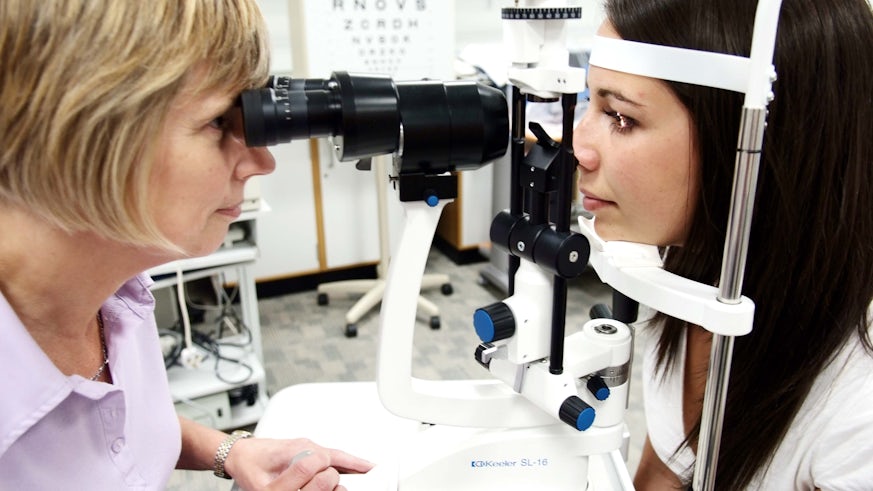First-born children more likely to develop short-sightedness
9 October 2015

University research shows first-born individuals are up to 20% more likely to develop short-sightedness than later born children
A large study led by researchers from the School of Optometry and Vision Sciences has shown that first-born children are more likely to develop myopia – a term otherwise known as short-sightedness – than later born children.
The study of nearly 90,000 people in the UK, aged 49 to 60, showed that first-born individuals were approximately 10% more likely to have myopia, and approximately 20% more likely to have a more severe form of the condition, than later born individuals.
Myopia, or short-sightedness, can often lead to visual impairment and blindness and is becoming an increasingly important public health issue, partly because it is becoming more common in younger generations in many parts of the world.
The researchers found evidence suggesting that exposure to education may protect later born children from myopia, with parents investing more education activities to first born children, although a causal relationship was not found.
The team, led by Professor Jeremy Guggenheim, from the School of Optometry and Vision Sciences, write: “The results replicate earlier findings from 2 contemporary international cohorts of adolescents/young adults, implying that the cause of the birth order–myopia association is widespread and has been in existence for several decades. The association was larger before adjusting for educational exposure, suggesting that reduced parental investment in the education of children of later birth order may be partly responsible.”
The results have been published in the journal JAMA Ophthalmology.